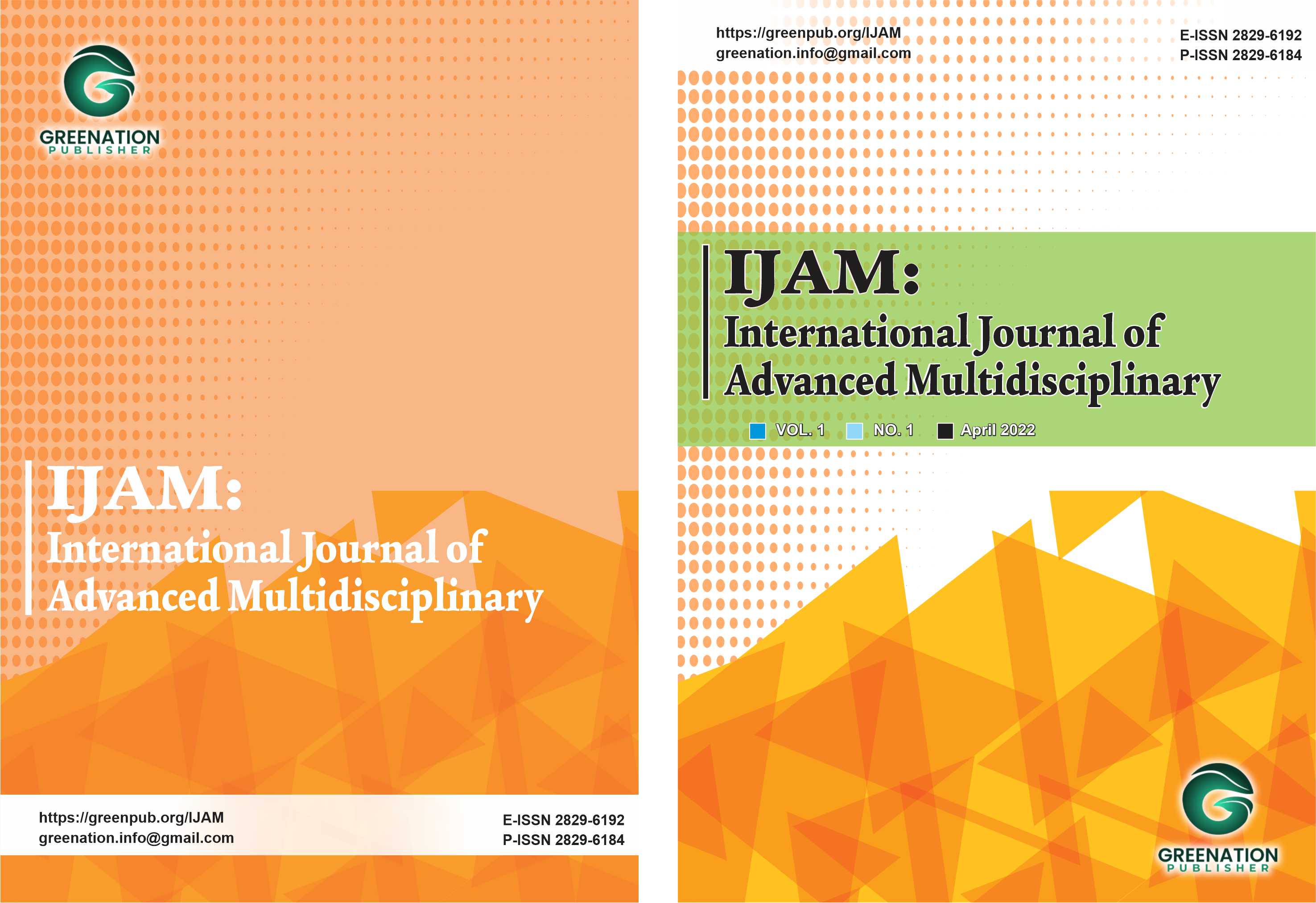The Influence of Service Quality, Relationship Quality on Port Performance Which has Implications For Customer Satisfaction at The Port Tg. Priok Jakarta Indonesia
DOI:
https://doi.org/10.38035/ijam.v2i2.327Keywords:
Service quality, Relationship quality, Port performance, Customer satisfactionAbstract
This study aims to examine and analyze the effect The Influence of Service Quality, Relationship Quality On Port Performance Which Has Implications For Customer Satisfaction At The Port Tg. Priok Jakarta Indonesia. The influence of the organization on the performance of Jakarta's Port tg.priok was studied with regard to its organic employees, either partially or indirectly. A sample of 70 people was selected from a population of 100 people using the Slovin formula. This research employs a survey method with descriptive and associative explanation techniques. Data was collected using both descriptive and inferential statistics through Structural Equation Modeling (SEM- SMART PLS). The model consists of sub-structures including Service Quality and Relationship Quality as exogenous variables, Port Performance as an intervening variable, and Customer Satisfaction as the endogenous variable. The primary components of the model consist of two indirect structures: the first examines the effect of Service Quality and Relationship Quality on Port Performance, while the second considers the direct effect of Service Quality and Relationship Quality on Customer Satisfaction. The R Square test on the inner model is one way to measure how much an endogenous variable can be explained by the related exogenous variables. In the following explanation, we will explain in more detail about the R Square concept in the inner model and how its use can help to understand the interrelationships between variables in a model. Following are the results of the regression analysis in this research model: The results showed that there was a positive and significant effect R Square R Square Adjusted Customer Satisfaction 0.493 - 0.471 Port Performance 0.251 - 0.230 . The following are the results of the R Square and R Square Adjusted tests on two endogenous variables in a model, namely Customer Satisfaction and Port Performance. Customer Satisfaction has an R Square of 0.493, which means that around 49.3% of the variation in Cust Satisfaction can be explained by exogenous variables associated with these variables. Meanwhile, the R Square Adjusted is 0.471, which indicates that around 47.1% of the variation in customer satisfaction can be explained by exogenous variables in the model, after taking into account the complexity of the model. Port Performance has an R Square of 0.251, which means that about 25.1% of Port Performance variations can be explained by exogenous variables associated with these variables. Meanwhile, the R Square Adjusted is 0.230, which indicates that around 23.0% of the variation in Port Performance can be explained by exogenous variables in the model, after taking into account the complexity of the model.
References
Amin, H., Santosa, P. I., & Ashari, A. (2014). E-Learning Platform for Computer Assisted Auditing Techniques (Tabk) Based on Open Edx. Semnasteknomedia Online,2(1),3-04-29.Retrieved from
Azam, A. (2020). Combined leadership development practices: improving organizational performance through organizational commitment. International Journal of Business Reflections, 1(1), 111-141.
Berberoglu, A. (2018). Impact of organizational climate on organizational commitment and perceived organizational performance: empirical evidence from public hospitals. BMC Health Services Research, 18(1), 399. doi:https://doi.org/10.1186/s12913-018-3149-z
Biro Pusat Statistik. 2005. Statistik Indonesia. Jakarta. Indonesia.
Buil, I., Martínez, E., & Matute, J. (2019). Transformational leadership and employee performance: The role of identification, engagement and proactive personality. International Journal of Hospitality Management, 77, 64-75. doi:https://doi.org/10.1016/j.ijhm.2018.06.014
Bush, T.(2017).The enduring power of transformational leadership. EducationalManagementAdministration &Leadership, 45(4),563-565. doi:https://doi.org/10.1177%2F1741143217701827
Cai, W., Lysova, E. I., Bossink, B. A. G., Khapova, S. N., & Wang, W. (2019). Psychological capital and self-reported employee creativity: The moderating roleof supervisor support and job characteristics. Creativity and Innovation Management, 28(1), 30-41. doi:https://doi.org/10.1111/caim.12277
Cesário, F., & Chambel, M. J. (2017). Linking Organizational Commitment and Work Engagement to Employee Performance. Knowledge and Process Management, 24(2), 152-158. doi:https://doi.org/10.1002/kpm.1542
Fahcruddin, I., Salmah, S., & Malau, A. G. (2019). Optimal Control For Malaria Epidemic Model With Vaccinating, Human Treatment And Mosquitos Spraying. Selecciones Matemáticas, 6(02). Pp. 189-195. DOI:10.17268/sel.mat.2019.02.05
Hall Emory, C. W. and Cooper, D. R. 2001. Business Research Methods. 4 th Ed. USA Irwin.
https://ojs.amikom.ac.id/index.php/semnasteknomedia/article/view/492 Arnold, K.A.(2017). Transformational leadership and employee psychological well- being: A review and directions for future research. Journal of occupational health psychology, 22(3),381-393. doi:https://psycnet.apa.org/doi/10.1037/ocp0000062
Kotler, P. 2005. Marketing Management: Analysis, Planing, Implementation, and Control. 8th Ed. Englewood cliff. Prentice.
Levitt, T. 1991. "Marketing Myopia". In B.M. Ennis and K.K Cox (Eds).
Marketing Classic: A Selection of Influential Articles. 7th Ed. Boston:Allyn and Bacon. Pp.3 - 21.
Tonocar. 2007. "The Future of Accounting in the Context of ECommerce". http://www. msi. edu/e-commerce.html
Downloads
Published
How to Cite
Issue
Section
License
Authors who publish their manuscripts in this journal agree to the following conditions:
- The copyright on each article belongs to the author(s).
- The author acknowledges that the International Journal of Advanced Multidisciplinary (IJAM) has the right to be the first to publish with a Creative Commons Attribution 4.0 International license (Attribution 4.0 International (CC BY 4.0).
- Authors can submit articles separately, arrange for the non-exclusive distribution of manuscripts that have been published in this journal into other versions (e.g., sent to the author's institutional repository, publication into books, etc.), by acknowledging that the manuscript has been published for the first time in the International Journal of Advanced Multidisciplinary (IJAM).






















